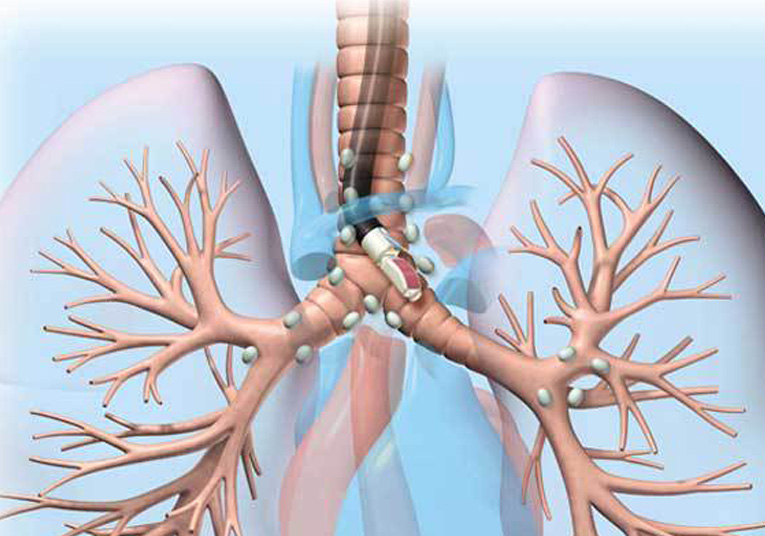
In additional to performing a bronchoscopy, our physicians may use endobronchial ultrasound (EBUS) to send sound waves through the walls of your airways and into the surrounding areas, including the lungs and mediastinum (the area of the chest that lies between the lungs). This procedure provides a better view or understanding of a particular site that is abnormal in presentation.
Reasons for performing an endobronchial ultrasound:
- To look for the presence of tumors or enlarged lymph nodes.
- To diagnose tumors within the lung
- To diagnose lymph nodes in the mediastinum
The bronchoscope is a flexible plastic tube less than 1/2 inch wide and about 2 feet long. The scope is passed through the nose and into the back of the mouth. From there, it is advanced into the main windpipe (trachea). Branching off the trachea are two smaller windpipes (bronchi), which themselves branch many times. The bronchoscope can be further advanced into these areas. Throughout the procedure, the doctor will be looking into the other end of the instrument, which allows the doctor to direct the bronchoscope, see any abnormalities, and if necessary remove small samples from within the windpipes.